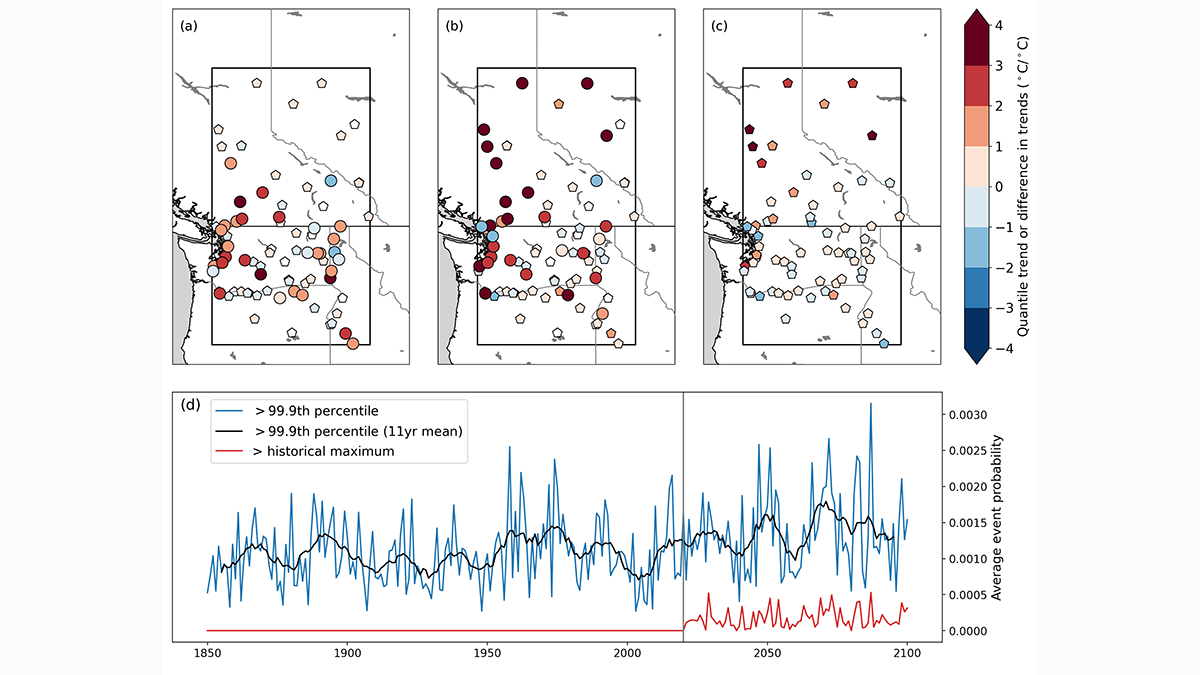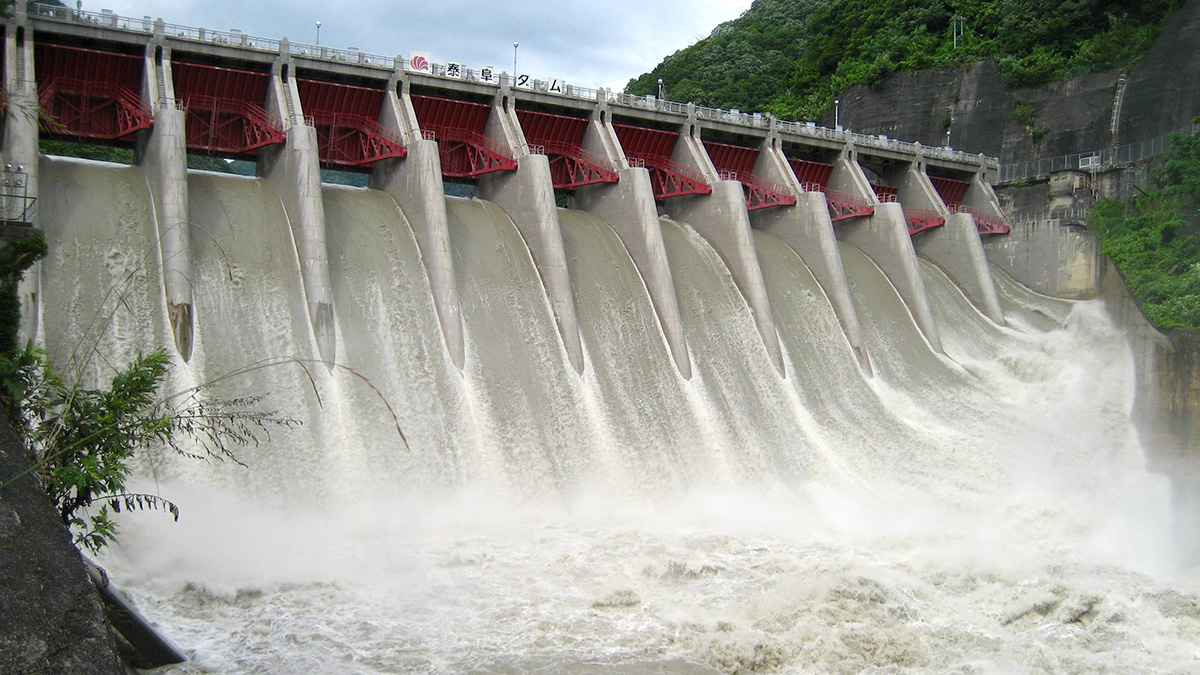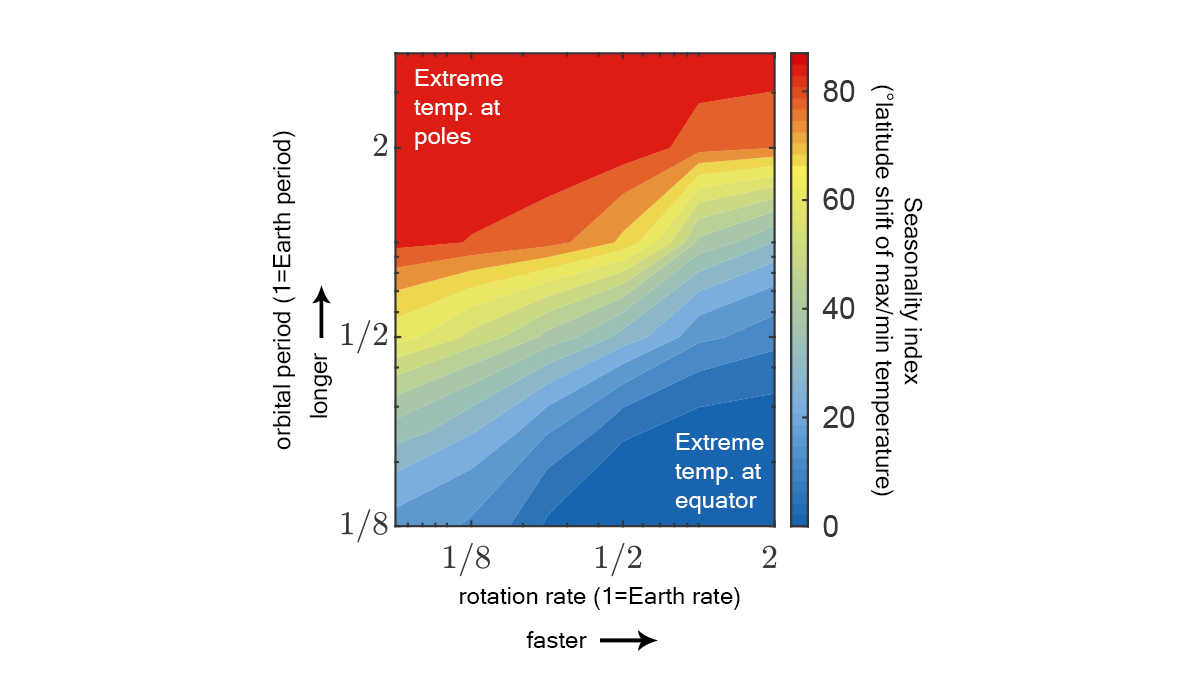Accurate tide models require self-attraction and loading terms, but can this calculation be done accurately and efficiently for use in global tide and Earth system models?
Modeling
Characteristics of the 2021 Pacific Northwest Heatwave
Examining the 2021 Pacific Northwest heatwave using both historical observations and model simulations.
Are We Entering the Golden Age of Climate Modeling?
Thanks to the advent of exascale computing, local climate forecasts may soon be a reality. And they’re not just for scientists anymore.
A Day in the Life Used to Be 17 Hours
The Moon was a lot closer to Earth 2.46 billion years ago, and the shorter distance contributed to shorter days.
Measuring the Ins and Outflows of Estuaries
Scientists modeled monitoring schemes in three different estuaries to determine instrument layouts that could effectively and efficiently measure exchanges of salt water and freshwater.
Extremeness of Seasons Determined by Planetary Motion Parameters
We’ve long known that a planet’s orbital period and tilt determine length and intensity of seasons. We now see rotation rate matters too: max temperature shifts poleward as rotation slows.
Machine Learning Helps to Solve Problems in Heliophysics
A new special collection invites papers pertaining to the use of machine learning techniques in all sub-fields of heliophysics.
Salt Spray May Stifle Lightning over the Sea
New research suggests that sea-salt aerosols seed large raindrops that starve clouds of water needed to make lightning. But not all scientists are convinced it’s simply about salt spray.
A Better Operational Lava Flow Model
By segmenting the vertical structure of a lava flow, the Lava2d model provides more realism to operational lava forecasts.










